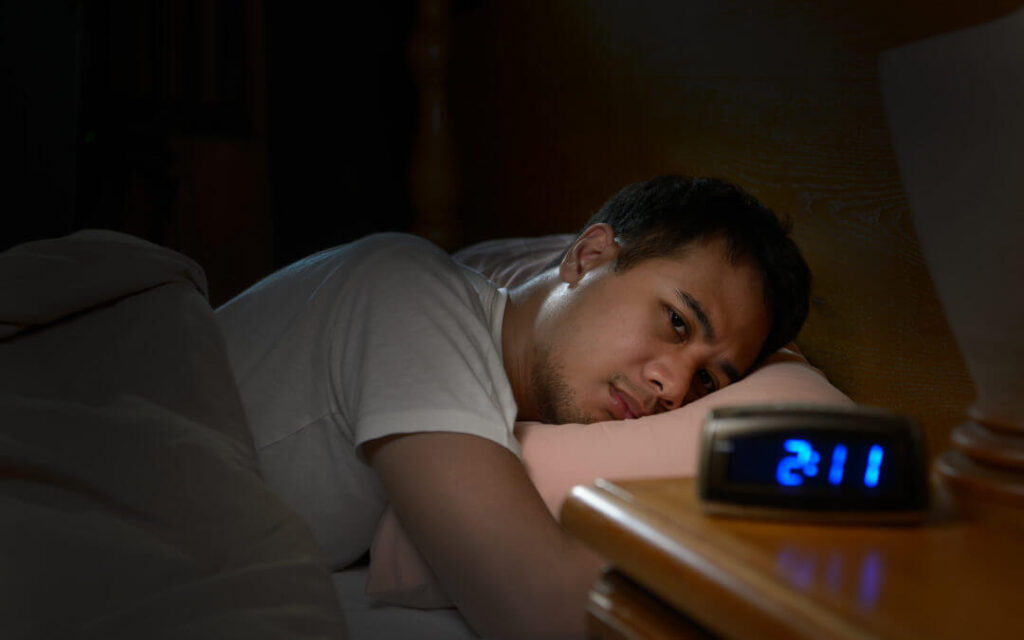Do these four things to get a better night’s rest
Chronic pain has the potential to disrupt your life in a multitude of ways. Lifestyle changes are necessary to mitigate pain, and it is recommended that you always get plenty of sleep.
It’s a vicious cycle. Chronic pain, poor sleep, and depression do a good job of feeding each other. Some studies show that sleep deprivation can actually lead to depression and chronic pain, and the same is true in reverse, with chronic pain leading to depression and poor sleep.
Whether you have difficulty getting to sleep or sleeping through the night, the exhaustion may have a significant impact on your ability to cope with even the most mundane day-to-day tasks.
If chronic pain is disrupting your sleep, here are four things you do today (and tonight) that are sure to help:
Chronic pain sleep tip #1: Reduce or eliminate caffeine and alcohol intake
Consuming caffeine or alcohol at any time of the day changes your physiology, but at night, they can have a devastating impact on your sleep patterns. If you must consume caffeine, stick to having it in the mornings, and never past three in the afternoon. Be aware of foods and drinks with “hidden” caffeine, too, such as cola drinks, white, black, or green tea, anything with chocolate, anything coffee-flavored, aspirin, protein bars, energy supplements, candy, and even decaffeinated coffee.
As for alcohol, even the kinds that are not sweet will turn to sugar in your system, spiking your blood sugar, and disrupting your sleep cycle. You may initially feel sleepy, but chances are you’ll wake up in the middle of the night and not be able to get back to sleep.
Chronic pain sleep tip #2: Avoid napping in the afternoon
While it may be challenging to avoid napping altogether, try to limit your daytime naps to no more than 30 minutes at a time.
Chronic pain sleep tip #3: Make your bedroom a sleep-only zone
Studies have proven that screen time, either on your phone, the computer, or the television, is highly disruptive to normal sleep patterns. Shut everything down at least 30 minutes before bedtime to ensure your brain is relaxed.
Additionally, if you can’t sleep, don’t lie there in bed, tossing and turning. Get up, sit in the living room and read a book, meditate, or take a warm, soothing bath.
Chronic pain sleep tip #4: Cognitive Behavioral Therapy (CBT) or Biofeedback
There are several very effective behavioral therapies, like CBT and biofeedback, that have helped to address sleep issues for people with chronic pain. CBT, in particular, can help you identify thoughts and behaviors that interfere with sleep and may help you cope with depression and chronic pain as well.
A word about sleep medications
Medications can be prescribed to help you sleep, but often they are recommended only for use on an “as needed” basis, and some may disrupt your sleep patterns if taken too much or on a continual basis. Speak to your doctor about your options but focus on sustainable behavioral modifications for long-term success.
Is chronic pain disrupting your sleep? If you are struggling with chronic pain in Long Beach and don’t know where to turn, we can help. Reach out today to get started. Visit us at 3939 Atlantic Ave, Suite 102 Long Beach, CA 90807 or call (866) 766-8776 for immediate assistance.





3 thoughts on “Chronic Pain Disrupting Your Sleep?”
Your article helped me a lot, is there any more related content? Thanks!
Thanks for sharing. I read many of your blog posts, cool, your blog is very good.
I don’t think the title of your article matches the content lol. Just kidding, mainly because I had some doubts after reading the article.